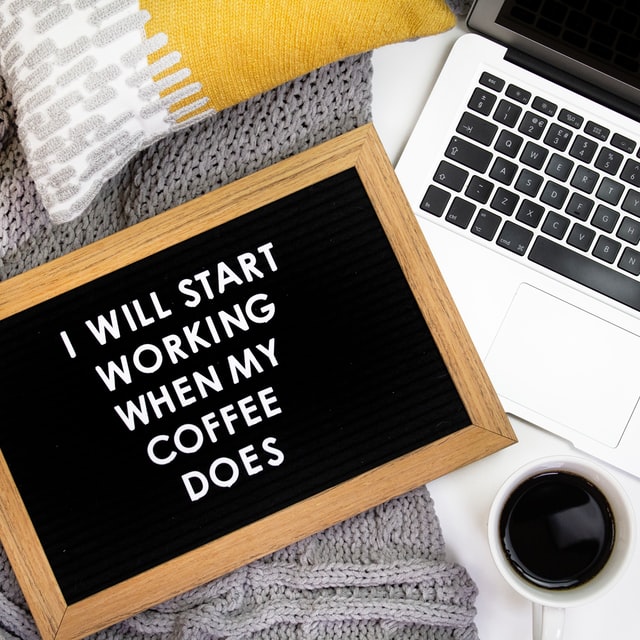By Becky Wong
What do you see when you imagine being a freelancer?
Being your own boss. Working whenever you want to, wherever you want to and being able to set your own rates. Working with clients and projects that you love. No more daily commute and going into the office!
Freelancing can provide you with a ton of benefits. I love freelancing because I love the flexibility and variety that it provides. The gig economy has been on the rise for a long time with more and more individuals like myself making the leap.
It’s important, however, to also acknowledge that it is not always sunshine and roses. Freelancing is not always the right choice for everyone. Going freelance is essentially running your own business. Be sure to weigh up the pros and cons, do your research and take the following into consideration before you hand in your notice letter to your boss.
Here are 7 things to consider before you go freelance.
1. Why do you want to be a freelancer?
Perhaps it is because you would love to have the flexibility the comes with being able to set your own hours. Perhaps you want to earn more as a freelancer. With each potential benefit that comes with freelance work, it does not come straight away.
Bear in mind that for most freelancers it takes time and hard work before they could match their previous salary and with flexibility comes the chance for freelancers to not know when to switch off from work. Your hours may become irregular and you will still need to compromise on what you work on at time in order to pay your bills.
This is not to scare you away from freelancing. It is more a reminder that nothing is perfect and freelancing cannot provide you with a magic bullet solution to live a ‘better life’.
2. Having the right mindset and motivation
Having the right mindset and motivation will help you to be a successful and happy freelancer. Knowing not to quit straight away, being consistent, staying motivated and proactive are all key to growing your freelance business. Success will not happen overnight. It is exciting and freeing but it is also hard work.

3. Staying on top of your finances
I would never advise anyone to quit straight away and start your freelance journey without preparation or planning! A good thing to do would be to save up at least 3 to 6 months worth of what you would need to live off and also start freelancing alongside your full-time job before you make the full leap. Make sure you have a safety net to fall back on.
On top of this, you’ll no longer rely on your employer to manage your PAYE salary. You will be in charge of your own finances, such as submitting your annual self-assessment to HMRC every year, putting aside earnings for tax, having the right insurance and incurring costs that come with being self-employed or running a business.
4. What skills or expertise can you provide?
You know freelancing is for you. You’re ready to make the leap. What will your freelance business look like? What services will you offer? Having a clear idea of what problem you will solve and who your ideal client is will be invaluable in building your freelance business. It will allow you to clearly present what you do and easily identify your perfect clients.
5. Putting yourself out there
You will be in charge of bringing in and keeping a client base. If you do not promote yourself then no-one will know to find you to hire you. So be prepared to proactively put yourself out there, promote what you do. Tell the world! Tell everyone! Let them that you are in business and ready to go.

6. Taking charge of your own personal and professional development
As with ensuring you have regular work coming in, it will be up to you to review how well you are doing, what areas you could work on improving and how you want to grow. Everyone can continuously improve no matter what stage you are at.
There is a wide range of resources for you to learn from, from online (or in-person) courses, live events to working with a coach or mentor. You’ll be responsible for setting aside your own learning & development budget too – though there are also many scholarships and grant schemes available if budgeting for this is not possible straight away.
7. There will be lots of downtimes
Work comes in ebbs and flows for freelancers. Sometimes quiet periods are expected, while others come as a big surprise! Clients may suddenly stop working with you because either their budgets or priorities have changed.
Demand for your services may have lulls during specific times of the year. Consider if you feel comfortable with having periods of time where you will not have steady work or be receiving an income. This is where always having a financial safety net comes in handy! On the plus side, if you are prepared for these downtimes, they provide a great opportunity to spend time on other personal projects or for

If you have been asking yourself if you should go freelance, take your time when taking all of this into consideration. Have a think about how you work best, what your ideal day-to-day looks like and what kinds of environments you prefer to work in. Would you be happy to embrace all of the uncertainty and responsibility that come hand-in-hand with the benefits of freelancing?
You might learn that you thrive working on a project-to-project basis, juggling a number of clients while working from different locations. For me, I work best switching up where I work every day – from working from home, working from cafes, working from co-working spaces – as well as what I work on everyday.
Or you might realise you work best working with the same team, having the stability of a regular salary, going into an office and seeing your colleagues every day. With more organisations now moving towards flexible and remote working, it may simply be a case of finding the right company to work at will be what works best for you rather than moving into freelancing.
It is different for everyone. Find out what works best for you.
Personally, I’ve always embraced uncertainty in work and life. While growing up I moved homes a lot with my immediately family and lived between the UK and Hong Kong. Over the last few years I have freelanced for a variety of small businesses and solopreneurs, while worked remotely from different countries for months at a time around the UK, elsewhere in Europe and in Asia. It is through freelancing, as well as having opportunities to work remotely while in London previously, that I have discovered these ways-of-working allow me to produce my best work, that I do not thrive while working in office environment and I am more at ease in smaller, quieter towns over busy cities.
Everyone is different. There is no right or wrong. There is no one-size-fits-all when it comes to how each person delivers their best work. Find out what works best for you before you jump to your decision.
If you decide that the answer to the title question is “Yes! I should go freelance!”, then: Hurrah! Welcome to the fold! In the coming weeks, I’ll be interviewing fellow freelancers, posting about how exactly do you know if you should go freelance and sharing the ups and downs of being a freelancer. Keep an eye on Project Anywhere for our updates and new posts.
Have these helped you while you ask if you should go freelance? Are you a freelancer who has extra considerations to add here? Let us know in the comments below or come into our Facebook group here to share with our online community!
We’d love to hear from you if you have any questions and if you have found this post or any of our content helpful to you.


I’m completely new to this field. Thanks a lot for this.
LikeLike
You’re very welcome! Really glad to hear you found it helpful. 🙂
LikeLike